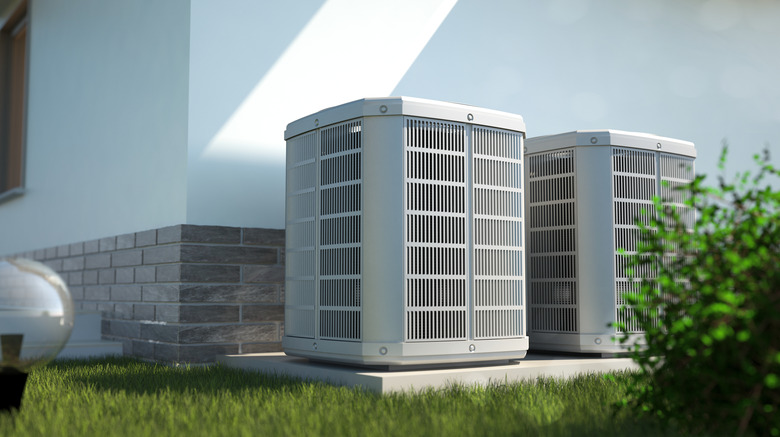How To Know If The Air Conditioning Compressor Is Bad
We may receive a commission on purchases made from links.
An air conditioner is one of those items for which many of us are thankful because it saves us during the hotter months, but many people don't give the whole operation that much thought. Although it's easy to just go to your unit and input your desired temperature, you must know the signs if your air conditioning compressor is bad. Not only will knowing the indicators save you a major headache in the long run but you also won't have to sit in a hot room wondering why you're not cooling off as quickly as before.
Purpose of an Air Conditioner Compressor
Purpose of an Air Conditioner Compressor
An air conditioner compressor is an essential part of an air conditioner because it's responsible for the heat-transfer functions that deliver conditioned air to different rooms. The compressor runs refrigerant through your unit so it can produce cold air. If you have a bad air conditioning compressor, your air conditioning unit will not be able to produce cold air.
Change in Temperature and Flow
Change in Temperature and Flow
Although there are many indications that an air conditioning compressor is bad, a primary sign is your electric bill. If you notice your electric bill is climbing for no particular reason, your air conditioning compressor could be wearing out. When an air conditioning compressor is wearing out, it's not able to compress enough gas. This means that your compressor will run longer than it needs to run to cool down your rooms, which is why your bill is increasing.
Also, take note of a reduction in cold air or warm air coming out of your vents. When a compressor is going bad, air temperature may be warmer than normal. If you're noticing warmer temperatures in your home, this means that your compressor is no longer maintaining the proper refrigerant pressures or flow, which is why warm air is coming out instead of cold air.
Noises Coming From the Unit
Noises Coming From the Unit
If you turn on your air conditioner and you notice a louder than normal noise, your compressor could be starting to go bad. Your compressor could be making noises for a couple of different reasons, including loose bearings or a leaking bearing. Loose bearings typically make a grinding noise, and leaking bearings make a squealing noise.
As soon as you notice any abnormal noises, you should call a repair technician to check out your unit. Although it's easy to think that noises will go away, you could be damaging your unit even more by just letting it run.
Puddles or Leaks
Puddles or Leaks
Puddles and leaks are also a huge indicator that something is wrong. Although dirty and clogged coils can cause water leaks, a bad compressor can also leak refrigerant. If you're noticing any leaks, stay away and call a repair technician immediately, even if your first instinct may be to clean up the leak or puddle. A repair technician will be able to diagnose the problem while keeping you safe.
Routine Compressor Maintenance
Routine Compressor Maintenance
There are three essential things you can do to keep your compressor operating longer. First, keep up routine maintenance. The second thing you should do is be careful when landscaping around the exterior unit. Vents can be damaged even though they look like they can withstand anything. Finally, keep plants, leaves or other debris 2 to 3 feet away from your unit so that they won't restrict airflow.
